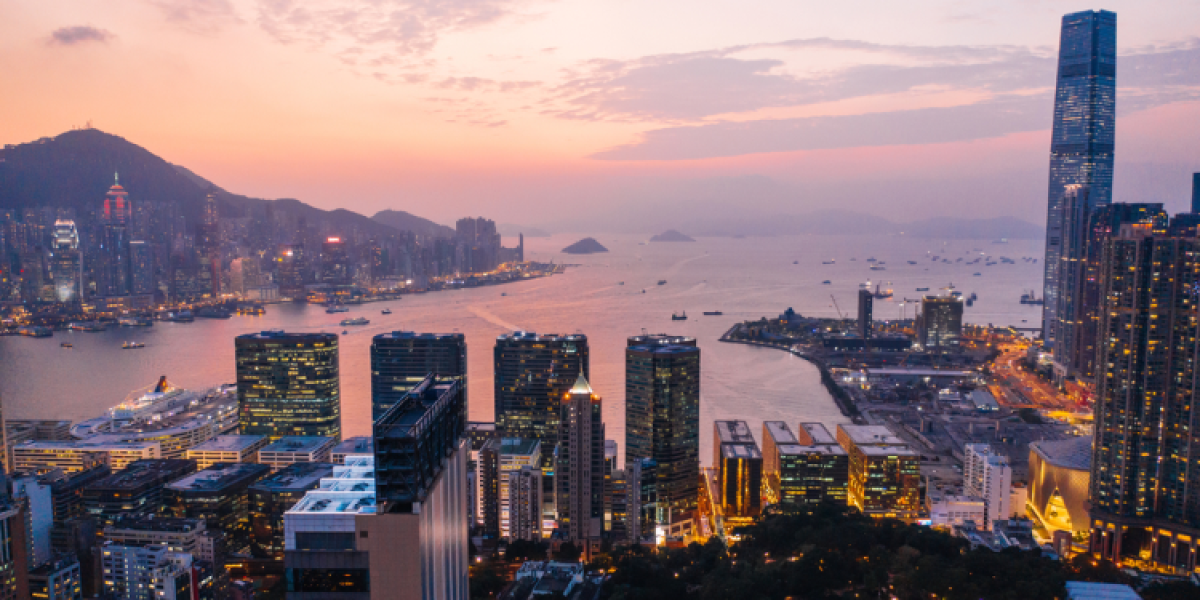
What used to be one of the world's most attractive expat destinations, Hong Kong is now facing a sort of expat exodus. A long wave of protests in 2019, followed by the COVID-19 pandemic, definitely account for this situation. Let's have a closer look.
Hong Kong is world-famous for its modernity and high-quality infrastructure and the abundance of career prospects for foreign professionals, attractive wages, and its high standard of living. For many years, it has been a favourite destination for expats from Europe, Australia, New Zealand, the US, etc. In 2019, Hong Kong was home to some 90,000 foreign residents, including nearly 25,000 Americans. It's worth noting that Hong Kong has also been a top destination for setting up a business, as evidenced by the number of companies and startups that have been established over the years.
But the wave of civil protests became a significant threat to harmony and security. The introduction of a new national security law by the Chinese government following the protests was another big question mark for expatriates wondering whether they should stay. In recent months, thousands of expatriates and companies preferred to leave, even though things started to calm down by the end of 2019. Today, Hong Kong is experiencing a sort of expat exodus, as is the case in several Middle East countries.
According to the latest immigration figures, there was a considerable drop in the number of Hong Kong work visas applications in early 2020. As of October 2020, only 11,474 work visas had been issued to foreign professionals, while in 2019, 31,293 visas were issued.
The impact of the health crisis
Hong Kong wasn't spared by the COVID-19 pandemic either. With more than 11,800 cases and 210 deaths, Hong Kong is currently facing a fourth wave after a new variant was detected. Add to this a strict quarantine for all new arrivals and very young children identified through contact tracing. This is another significant issue for Hong Kong residents and foreigners who were looking to relocate there. Some 5,000 residents recently signed a petition calling for home quarantine for young children if they test positive for COVID-19. Hong Kong is, in fact, one of the countries with the strictest quarantine regime in the world.
Rising unemployment rate
The pandemic has also affected the Hong Kong labour market. As indicated above, the number of work visas granted to foreign professionals has been declining since the start of 2020. But that's not all! Unemployment is currently at its highest rate since 2004! In spite of a slight drop from 7.2% to 6.8% from January to April 2021, it remains a major concern. The Department of Employment warms that things are not likely to improve anytime soon unless the pandemic has been contained. In February 2021, some 261,000 people were unemployed.
Virtually all sectors have been affected by the crisis, although tourism, commerce, real estate and food have been the hardest hit. With current restrictions worldwide, other sectors such as import and export, courier services, education, and arts and entertainment, have also experienced a considerable decline. This resulted in an economic contraction of 1.2% in 2019. However, the International Monetary Fund expects a 3.7% growth for Hong Kong in 2021 and an additional 3.4% by 2022.
What about the property market?
Hong Kong is renowned for its high-end and expensive real estate market. However, it has taken a serious hit with the mass departure of expatriates. Real estate professionals point out that rent prices in Hong Kong are currently at their lowest rate since 2016. Many apartments are being rented for around $ 5.77 per square foot. For example, in Soho, one of Hong Kong's most desirable areas, two-bedroom apartments are available for around $ 3,500 per month compared to $ 4,200 before the crisis. In other popular neighbourhoods, prices dropped by nearly 25% since the end of 2019 -- which is good news for expats and residents who are looking to move house.
Since the number of arrivals and visa applications in Hong Kong has dropped, further drops in rental prices are expected in 2021. According to real estate experts, prices could decrease by 5 to 10% more over the next few months. However, selling prices have been quite resilient throughout the crisis. While property prices fell by 4% in 2019 at the peak of the protests, they soon became steady due to the already high demand. Meanwhile, construction projects keep on increasing. In 2020, 18,077 more real estate projects were completed compared to the previous year. It's worth noting that 13,206 primary properties sales accounted for a value of $ 18.92 billion, while 40.607 secondary properties were sold for a value of $ 44.23 billion.



















